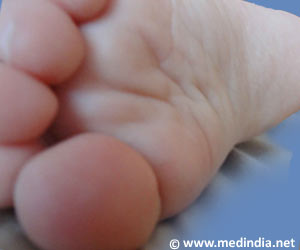Fat transfer is a safe, natural alternative to synthetic fillers and implants. It uses your fat for subtle, long-lasting results in body contouring & facial rejuvenation.
- Fat transfer is a cosmetic surgery technique that enhances body contour and rejuvenate the skin using the body's natural fat
- Common areas where fat transfer is used are the face, breasts and buttocks
- Fat grafting improves skin texture and elasticity
Six of the most common areas that plastic surgeons do fat transfers
Go to source). It offers solutions for individuals seeking small yet long-lasting body contouring and facial rejuvenation, as it uses the patient’s adipose tissue to achieve desired results.
Fat transfer not only contours the body but also improves skin texture & elasticity thanks to the stem cells in fat cells. Double the benefits! #skinrejuvenation #fattransfer #aestheticsurgery #medindia’
What is Fat Transfer?
Fat transfer known as fat grafting or lipofilling involves the removal of excess fat from one area of the body (abdomen, thighs or flanks) which is processed and injected into the area that requires volume or enhancement.Common areas where fat transfer is used are the face, breasts and buttocks. The procedure uses the patient’s fat cells, so the risk of allergic reaction or rejection is reduced. This makes fat transfer an appealing choice for a natural form of augmentation.
Benefits of Fat Transfer
The fat transfer gives a natural appearance as it uses the patient’s fat cells. It blends seamlessly with the surrounding tissue, ensuring soft and subtle enhancements whether applied for facial volume restoration, breast augmentation or body contouring.One unique advantage of fat transfer is its ability to contour two areas of the body simultaneously. This procedure removes fat from areas where volume reduction is desired (slimming effect) while simultaneously improving the volume of areas like buttocks, breasts or face. This dual action improves body proportions and self-confidence.
Fat cells are known for their durable nature which can survive up to 10 years. Once the transfer fat cells receive and establish a blood supply in the transferred location, it becomes a permanent part of the tissue. Synthetic fillers require frequent touch-ups where as fat transfer act as part of the body. It is a long-lasting improvement with fewer maintenance sessions.
It is a safer option for individuals with sensitivity to foreign substances. The fat used is the patient’s own, and the risk of allergic reaction or rejection is eliminated.
Fat grafting improves skin texture and elasticity. Fat cells contain stem cells that promote skin regeneration and give a revitalized youthful appearance. This makes fat transfer appealing for patients who want both volume restoration and skin revitalization.
Transformative Applications and Lasting Benefits of Fat Transfer in Aesthetic Surgery
Fat transfer is used for various aesthetic purposes. It is commonly used for- Facial Rejuvenation: Fat injections are used to restore volume in areas like the cheeks, under the eyes, and jawline, providing a more youthful appearance.
- Breast Augmentation: Fat transfer offers a natural breast enhancement option, allowing patients to avoid the use of implants and achieve subtle, natural-looking results.
- Buttock Enhancement (Brazilian Butt Lift): Fat transfer can be used to create a more sculpted and rounded appearance. This is often referred to as a Brazilian Butt Lift (BBL).
- Hand Rejuvenation: Fat grafting can be used to fill out the hands, reducing the appearance of veins and wrinkles and making them look smoother and more youthful.
Reference:
- Six of the most common areas that plastic surgeons do fat transfers - (https://www.plasticsurgery.org/news/articles/six-of-the-most-common-areas-that-plastic-surgeons-do-fat-transfers )
Source-Medindia
















